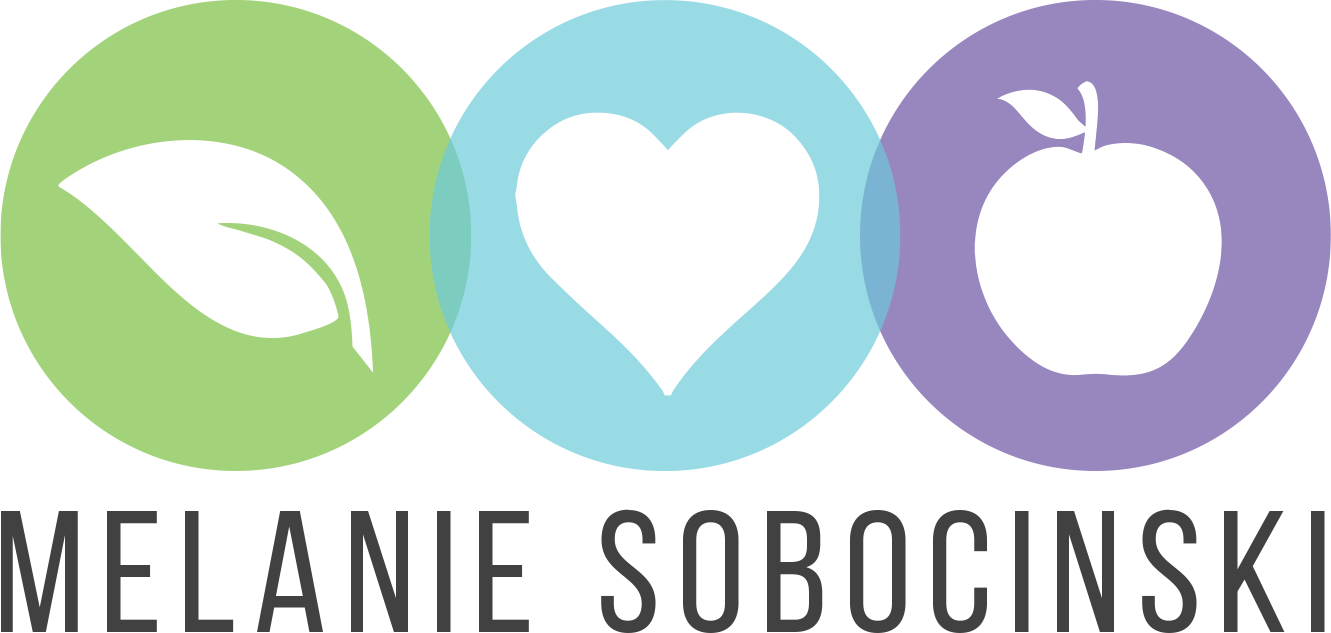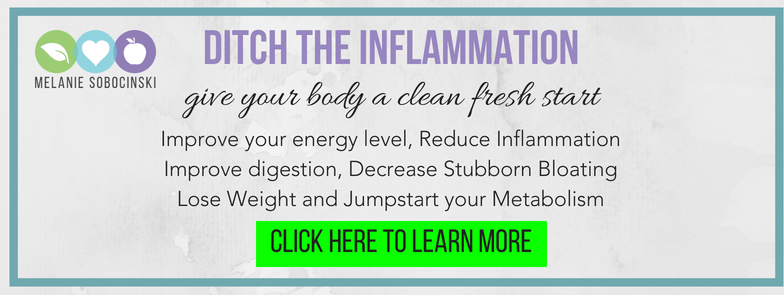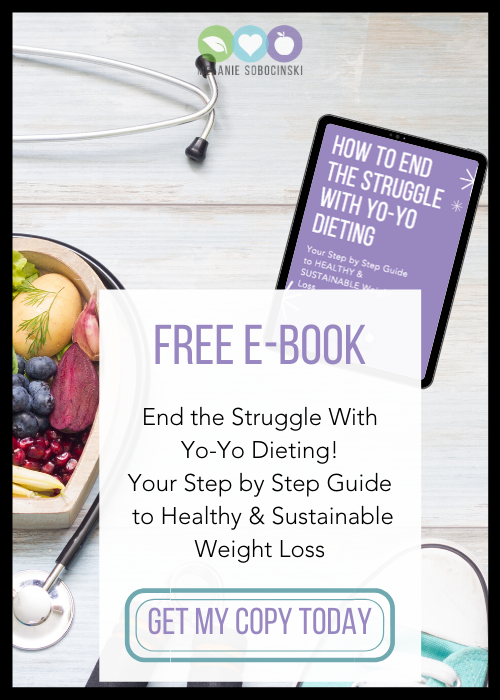Inflammation; The Root of Most Diseases

We may earn money or products from the companies mentioned in this post.
When we talk about inflammation, you may find that it is associated with most health conditions. Chronic inflammation can have many negative effects on health.
Illnesses and Diseases associated with Inflammation
Let’s talk about the actual root cause of certain diseases. Arthritis is inflammation of the joints. Heart disease is inflammation of the arteries. Instead of taking a medication to reduce joint pain or lower cholesterol, we would be better served by reducing inflammation in the body.
Inflammation has been recognized as the underlying basis of a significant number of diseases.
It has been known to play a role in allergic diseases like asthma, arthritis and Crohn’s disease. It has also been found to have links to Alzheimer’s disease, cancer, cardiovascular disease, diabetes, high blood pressure, high cholesterol levels and Parkinson’s disease. All of which may be related to inflammation in the body.
What is Inflammation?
Inflammation isn’t always a bad thing. It’s our bodies way of protecting itself. It is the body’s natural defense against damaged cells, viruses, bacteria. It can be beneficial when, for example, your knee sustains a blow and tissues need care and protection. However, sometimes, inflammation can persist longer than necessary, causing more harm than benefit.
There are actually 2 different types of inflammation, acute and chronic. While acute inflammation starts quickly and generally disappears in a few days, chronic inflammation can last for months or years as a result of failure to eliminate the cause and minor, repeated exposure to the agent.
Acute inflammation
Examples of diseases, conditions, and situations that can result in acute inflammation include:
- acute bronchitis
- infected ingrown toenail
- a sore throat from a cold or flu
- a scratch or cut on the skin
- high-intensity exercise
- acute appendicitis
- dermatitis
- tonsillitis
- sinusitis
- a physical trauma ( sprain or strain)
Chronic Inflammation
Examples of diseases and conditions that include chronic inflammation:
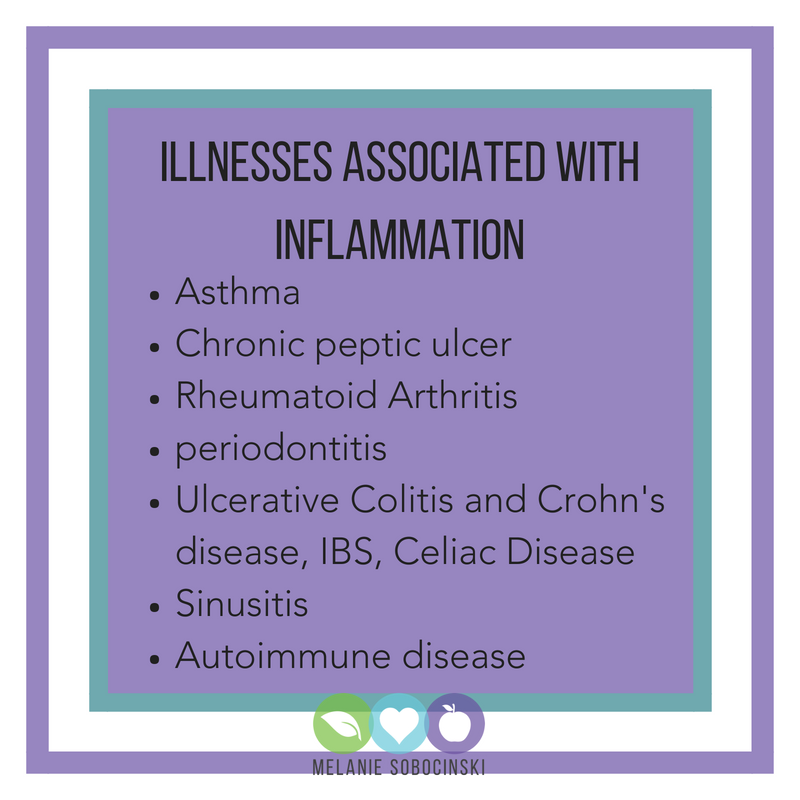
- asthma
- chronic peptic ulcer
- tuberculosis
- rheumatoid arthritis
- periodontitis
- ulcerative colitis and Crohn’s disease
- sinusitis
- active hepatitis
- IBS
- Auto Immune
- Celiac Disease
What Causes Inflammation?
While we know the cause of acute inflammation can be from an injury or short-lived illness, we need to dive a little deeper into the actual cause of chronic inflammation.
We know that inflammation is the bodies natural defense against something foreign it’s important to look at what exactly that foreign “object” may be. It obvious when it’s a short live injury or illness but what happens when the inflammation sticks around for way longer than you expect?
Digging deep to find the root cause of what has caused the chronic inflammation may be the answer we need to help eliminate signs and symptoms of certain diseases.
Dietary and environmental toxins may build up in the body, turning the immune system on and keeping it highly reactive.
Foods that Cause Inflammation:
Sugar and High Fructose Corn Syrup
Sugar is evil, seriously!! I know it tastes awesome in a little treat here and there BUT did you know when we eat too much glucose-containing sugar, the excess glucose our body can’t process quickly enough can increase levels of pro-inflammatory messengers called cytokines. And that’s not all. Sugar also suppresses the effectiveness of our white blood cells’ germ-killing ability, weakening our immune system and making us more susceptible to infectious diseases.
High fructose corn syrup is a sweetener derived from cornstarch. It’s basically 100 percent glucose. See the paragraph above if you have quickly forgotten about the dangers of glucose.
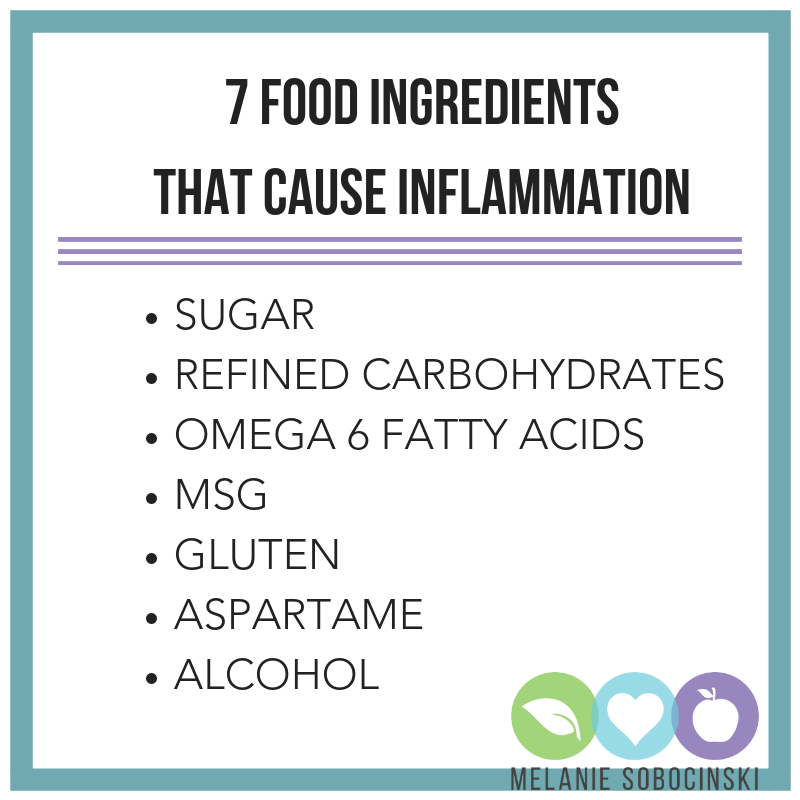
Artificial Trans-Fats
Artificial trans fats have been shown to cause inflammation and increase disease risk. They do not occur naturally in foods, our body doesn’t possess an adequate mechanism to break them down. And when our body senses an unknown, foreign object, it can stimulate an inflammatory response.
Consuming artificial trans fats may increase inflammation and raise the risk of several diseases, including heart disease.
Vegetable and Seed Oils
These oils have a high concentration of the inflammatory fat, omega-6, and are low in the anti-inflammatory fat, omega-3. When consumed in high amounts it may promote inflammation.
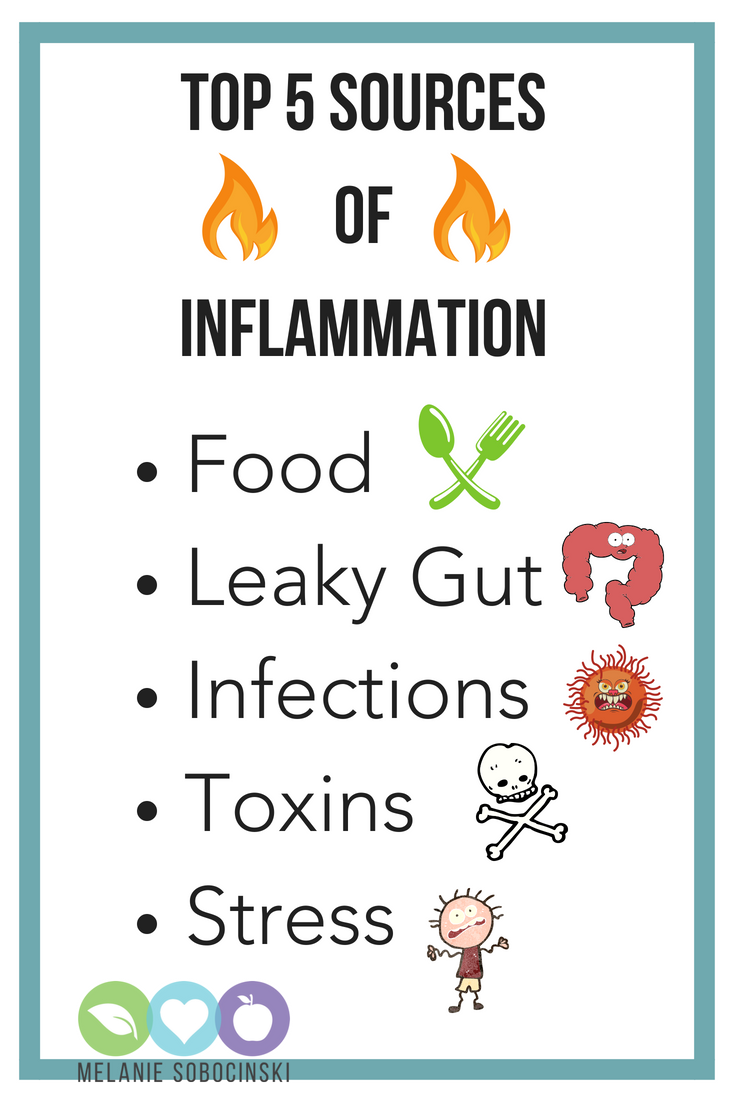
Refined Carbohydrates
Refined carbohydrates have had most of their fiber removed. Fiber promotes fullness, improves blood sugar control and feeds the beneficial bacteria in your gut. The more quickly your body digests glucose-containing foods, like refined carbs, the faster your blood sugar levels can spike, which also spikes your insulin levels—a compound associated with a pro-inflammatory response.
Excessive Alcohol
We all know that too many drinks can be bad for us any way you look at it. High amounts of alcohol can be hazardous to our health. That’s because the process of breaking down alcohol generates toxic by-products which can damage liver cells, promote inflammation, and weaken the body’s immune system.
Heavy alcohol consumption can increase inflammation and potentially lead to a “leaky gut” that drives inflammation throughout the body causing more health issues along the way.

Processed Meat
Need I say more? PROCESSED, that pretty much means this is FAKE food. Our bodies do not recognize this food and again it tries to protect us by triggering inflammation. The ingredients that go into processed meats are registered as foreign attackers to our immune system.
Dairy
While dairy is thought to be healthy for us, some of it can actually cause triggers in certain people. Ever heard of lactose intolerant people? They cannot stomach dairy. It triggers an allergic reaction. You may know some who literally blow up like a balloon when they eat cheese or drink milk. Some dairy products can actually disrupt our gut microbiome, actually decreasing levels of our good gut bacteria which are key players in reducing inflammation.
Artificial Sweeteners
The word ARTIFICIAL should ring a bell here. Again, your body is NOT recognizing these fake foods. Artificial sweeteners disrupt the composition of our gut microbiota by decreasing levels of the good bacteria Bacteroides, which are known to help release anti-inflammatory compounds.
Processed Foods
These foods have very low nutritional value and often have unnecessary ingredients (and lots of added sugar). They are not real foods and your body tends to put up its defenses when tiring to digest them which in turn causes inflammation.
The ingredients in process foods like, trans fats, saturated fats, artificial additives and sweeteners and vegetable oils do not naturally occur in foods therefore, they are not recognized by our bodies. This, in turn, causes inflammation
Gluten
This might just be one of the top foods that causes inflammation in the body. So what exactly is gluten? Gluten is the protein found in wheat, rye, barley and other derivatives of these grains. It acts like a glue and helps maintain the shape of the food.
Gluten proteins can irritate the gut which can lead to inflammation. Sustained inflammation leads to gut permeability (Leaky Gut), which is basically that too many things are passing through the intestinal walls and getting into the bloodstream. What can happen next is a host of autoimmune diseases. Those are the diseases where the body starts attacking itself.
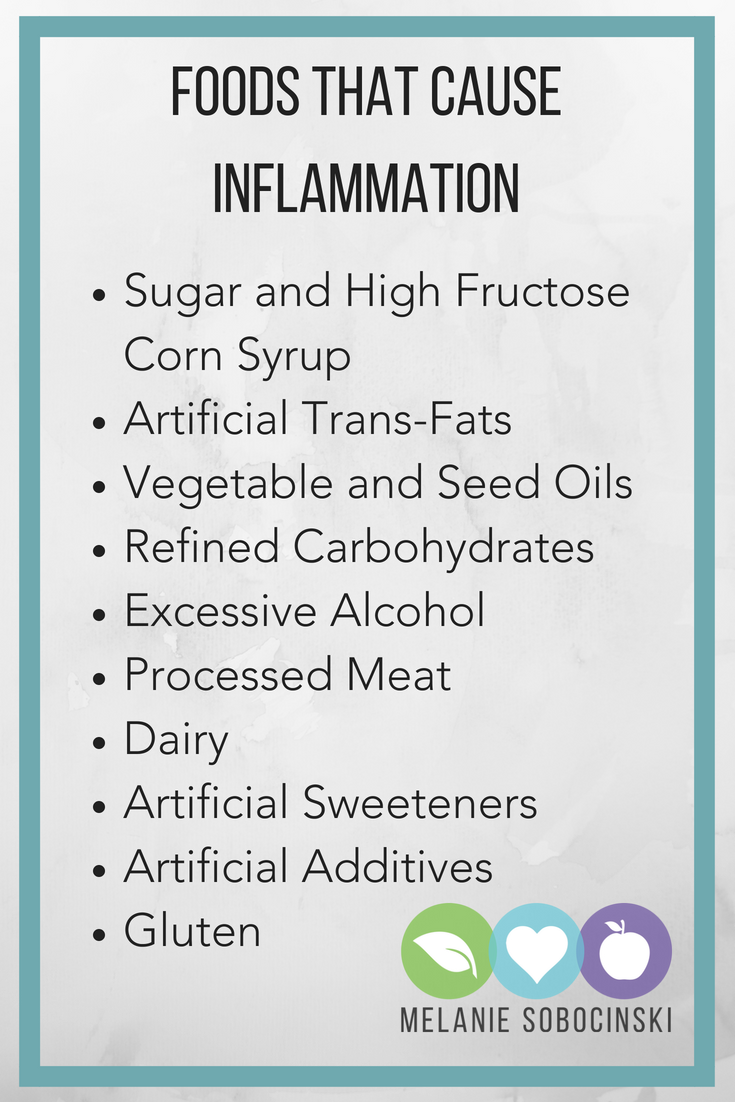
How to Reduce Inflammation
It’s pretty easy yet most won’t do it. To reduce chronic inflammation and reverse many signs and symptoms of the diseases I listed above, STOP eating the things that cause the inflammation. I know that sounds harsh because we think just by taking a pill it will solve things. I know for most people, that is NOT the case. It all starts with food.
Eliminate all sources of inflammation from your diet. This includes rancid oils, sugars, conventional meats, pasteurized dairy, trans fats, and sugars. Eat more anti-inflammatory foods such as fiber, fruits, and vegetables You may also want to supplement your diet with vitamin E, curcumin, acetylcarnitine, and catechin have had positive and preventative effects on Alzheimer’s and Parkinson’s diseases.
What if it were that easy? Honestly, I’ve seen many people I work with reverse their signs and symptoms and they’ve even been able to STOP taking the meds they were taking.
I suggest starting small and eliminating things slowly and give it 30 to 60 days without the inflammatory foods and see how you feel. You might just be surprised at how much better you feel. I also recommend a good, healthy cleanse or reset of your gut. I’ve seen inflammation subside with my clients from my SEASONAL GUT RESET along with the elimination of many other health issues.
Remember this, you are only as healthy as the foods you CAN digest!
Latest posts by Melanie Sobocinski (see all)
- Why Your Metabolism and Hormones May be a Little Slow - November 5, 2020
- My Before and After Story - September 11, 2020
- 7 Changes That Happen When You Don’t Eat Enough - July 16, 2020
